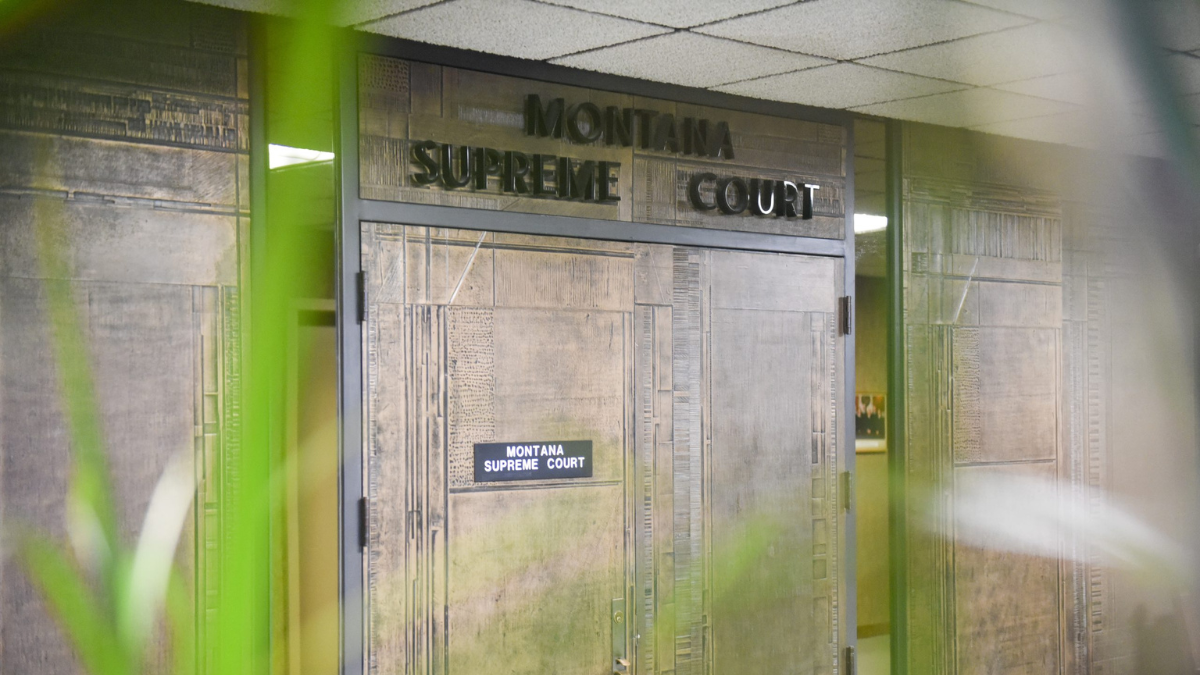The Montana Supreme Court has upheld a lower court’s decision that allowed advanced practice registered nurses to legally provide abortions in the state.
On Friday, the state’s high court issued its ruling in Weems v. State, negating the state’s argument that the Legislature had the ability to regulate a nurse’s scope of practice that is currently overseen by a professional medical board.
In the opinion written by Supreme Court Justice Laurie McKinnon, the high court also reaffirmed the precedent set in 1999 by Armstrong v. State, which found that abortion is a medical choice protected by the state’s constitutional right to privacy.
“The Montana Constitution guarantees a woman a fundamental right to privacy to seek abortion care from a qualified health care provider of her choosing, absent a clear demonstration of a medically acknowledged, bona fide health risk,” McKinnon wrote.
The court’s six other justices concurred with McKinnon’s opinion.
Weems v. State dates back to 2018 when the Center for Reproductive Rights and the American Civil Liberties Union of Montana filed a lawsuit against the state on behalf of two advanced practice registered nurses, including Helen Weems, a certified nurse practitioner.
RELATED
Montana Supreme Court considers whether advanced practice nurses can provide abortions
The Montana Supreme Court has heard oral arguments in Weems v. State, a case that will decide whether advanced practice registered nurses can legally provide abortions in Montana, or whether the Legislature has broad authority to regulate a nurse’s scope of practice currently overseen by a professional medical board.
The suit asked the court to block a state law that prohibited advanced practice registered nurses from providing abortions. At the time, Weems was trying to reopen All Families Healthcare, a Flathead County-based clinic that provided abortions from 1997 until 2014 when it was vandalized and destroyed. In 2018, a Lewis and Clark County District Court judge allowed Weems to provide abortion care while the case proceeded through the court system. All Families Healthcare to reopened in Whitefish early that year.
In February of 2022, the judge ruled that advanced practice registered nurses could legally provide abortions. The state appealed that decision to the Montana Supreme Court, and oral arguments in the case were held in December.
During that hearing, attorneys for the state argued that the lower court decision should be overturned and the law allowing only physicians and physician assistants to provide abortions be upheld. Attorneys for the state also argued that it was an issue of safety, alleging that advanced practice nurses were not qualified to perform medical and surgical abortions. But in its ruling on Friday, the Montana Supreme Court found that there was no evidence to support that argument.
“The record is devoid of any evidence that advanced practice registered nurses providing abortion care present a medically acknowledged, bona fide health risk to Montana women,” McKinnon wrote. “The State’s argument is detached from the overwhelming evidence presented to the District Court that abortion care is one of the safest forms of medical care in this country and the world and that advanced practice registered nurses are qualified providers.”
The Montana Attorney General’s office criticized the ruling Friday afternoon.
“The state Supreme Court has become disgracefully radicalized and out of touch with Montanans,” Emilee Cantrell, spokesperson for the Montana Department of Justice, said in a statement.
“This case was not about the right to abortion – it was about whether women have a right to an elevated standard of care during an abortion. The Montana Supreme Court said ‘no’ and lowered the standard of care set by the Legislature, effectively constitutionalizing the right of unqualified individuals to perform unregulated abortions. This decision is a loss for Montana women who will be less safe because of the state Supreme Court.”
Nancy Northup, president and CEO of the Center for Reproductive Rights, said in a statement that the ruling would have wide-ranging impacts across the region, especially following the reversal of Roe v. Wade, which limited abortion access in surrounding states.
“Montana is a small state in population, but this is a big win for abortion care because every state it borders has banned abortion,” Northup said. “People in the Dakotas and Idaho are traveling to Montana for abortion care. This decision will increase the number of clinicians who can provide abortion care in Montana, resulting in greater abortion access for people across the Northwest.”
Weems said she was also excited about the outcome of the case.
“We are beyond thrilled that nurse practitioners across Montana can continue to serve their communities with the care that they need,” Weems said. “Montana lawmakers have been relentless in their efforts to restrict access to essential health care. It is more important than ever to protect our patients and their ability to make decisions about their health and families, and I look forward to continuing to make abortion care more accessible in our state.”
This story was updated May 12, 2023, to include post-publication comments from Emilee Cantrell, Nancy Northup and Helen Weems.
LATEST STORIES
What is a Supreme Court clerk, anyway?
PLUS: Who wants a special session?
Republican lawmakers mount three separate pushes for special sessions
A trio of special session requests from Republican lawmakers each touch on election-year issues, but lawmakers have historically had little success calling themselves into a special session.
What Montana’s candidates for governor have to say about renewing Medicaid expansion
We asked Republican, Democratic and Libertarian candidates if they would support reauthorizing the low-income health care program, which has in the past been the subject of vigorous debates in the Capitol — and is up for renewal again next year. Here’s what they had to say.


